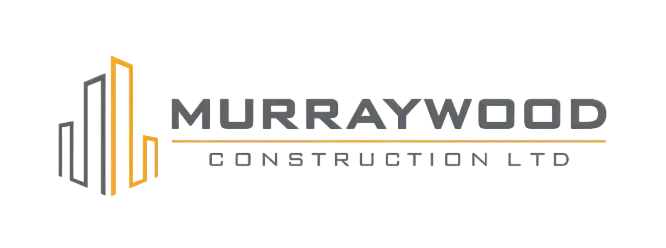Award-Winning, 5-Star Rated Service
The
HR, Legal & Safety
Team Behind Successful Businesses
Work 1-to-1 with qualified experts who deliver practical, commercial solutions.
.png?width=864&height=185&name=Heading%20(13).png)
Speak to an expert
Trusted by
Join hundreds of businesses who trust us to get it right - every time.










Neathouse Partners:
Your Trusted Partner
Neathouse Partners delivers 1-2-1, employer-focused support from highly qualified HR, employment law, and health & safety experts.
We serve business owners and HR practitioners, handling their documentation and providing tailored advice to reduce workload and ensure compliance.
With the expertise of a law firm at the cost of a consultancy, we offer personal service without the premium price tag, helping businesses navigate complex challenges with confidence.

Our Key Services
Market-Leading HR Services
We’re trusted by over 1000+ UK businesses, and that’s because our HR team know human resources inside–out. We support employers with all aspects of HR – from absence management, to drafting policies and defending employment tribunal claims.
Market-Leading Employment Law Services
We’re trusted by over 1000+ UK businesses, and that’s because our legal team know Employment Law inside–out. We support employers with all aspects of UK Employment Law – from contracts and handbooks, to defending employment tribunal claims.
Market-Leading Health & Safety Services
We support employers with all aspects of Health & Safety compliance – from policy drafting and audits, to RIDDOR reporting and ISO certifications.
Health & Wellbeing Services
We’re trusted by over 900 UK businesses, and that’s because our team know human resources inside–out. We support employers with all aspects of employee wellbeing, from our popular Employee Assistance Programme (EAP) to Occupational Health Assessments.
Employee Incentives
Need help attracting and retaining top talent? Our employee incentive arrangements could help you incentivise employee loyalty.
Commercial Law Services
Commercial lawyers at Neathouse Partners are experts in all areas of commercial agreements.
Get ISO Certified with Neathouse Partners
At Neathouse Partners, we now offer expert support to help your business achieve ISO certification smoothly and efficiently. Whether you're aiming for ISO 9001, ISO 14001, ISO 45001 or another standard, our tailored guidance ensures compliance, boosts credibility, and streamlines your operations- giving you a competitive edge in your industry.
Market-Leading HR Services
We’re trusted by over 1000+ UK businesses, and that’s because our HR team know human resources inside–out. We support employers with all aspects of HR – from absence management, to drafting policies and defending employment tribunal claims.
Market-Leading Employment Law Services
We’re trusted by over 1000+ UK businesses, and that’s because our legal team know Employment Law inside–out. We support employers with all aspects of UK Employment Law – from contracts and handbooks, to defending employment tribunal claims.
Market-Leading Health & Safety Services
We support employers with all aspects of Health & Safety compliance – from policy drafting and audits, to RIDDOR reporting and ISO certifications.
Health & Wellbeing Services
We’re trusted by over 900 UK businesses, and that’s because our team know human resources inside–out. We support employers with all aspects of employee wellbeing, from our popular Employee Assistance Programme (EAP) to Occupational Health Assessments.
Employee Incentives
Need help attracting and retaining top talent? Our employee incentive arrangements could help you incentivise employee loyalty.
Commercial Law Services
Commercial lawyers at Neathouse Partners are experts in all areas of commercial agreements.
Get ISO Certified with Neathouse Partners
At Neathouse Partners, we now offer expert support to help your business achieve ISO certification smoothly and efficiently. Whether you're aiming for ISO 9001, ISO 14001, ISO 45001 or another standard, our tailored guidance ensures compliance, boosts credibility, and streamlines your operations- giving you a competitive edge in your industry.
How we work with you

Let's work together
We provide outsourced HR, Employment Law and Health & Safety services to businesses like yours right across the UK.
Experience the undeniable success of our services – as reflected in our exceptional ratings
Packages
Every business is unique. That’s why Neathouse Partners provides bespoke packages covering all aspects of Health & Safety, Employment Law, HR, Business and Employee Wellness services. Create a package of services to suit your needs.
Our expert advice has featured in



Recent blog posts
Artificial Intelligence: When is an employer vicariously liable?
Labour’s U-turn On Unfair Dismissal Rights: What a Six-Month Qualifying Period Means for Employers
Casual Workers v Zero Hour Employees
The Ultimate Guide to Keeping Workplace Christmas Parties Safe and Legal
Monroe v RNLI: When Process, Not Headlines, Decides the Case
When the Grievance Becomes the Problem - Serial Grievance Raisers
FAQ
Frequently asked questions about Neathouse Partners.
We offer services to all businesses and organisations located in England, Wales and Scotland.
We provide HR and employment law services across a range of industries, including:
- Health and social care
- Retail
- Hospitality and leisure
- Charities
- Construction
- Engineering and manufacturing
- Commercial cleaning
- Healthcare
Visit our industries page for more information on the sectors we cover. If you can't find what you're looking for, get in touch and we'll let you know if we can cover your industry.
We pride ourselves on our professional yet personal service, and build close working relationships with our clients so that we remain accountable for the advice we give. We provide personalised solutions to our clients, tailoring them to their unique business challenges while making them compliant with UK employment law and HR best practices.
As a business owner, you need to focus on what’s really important to your business, with the peace of mind that we're looking after your HR requirements. We draft, edit and prepare your documents on your behalf, so that you can focus on your business knowing you’re fully compliant.
We're a small collective of specialist qualified employment lawyers and HR experts, delivering an outcome-focused end-to-end service that helps you to operate at your best and comply with both UK law and HR best practices.
You’ll be given your own personal HR Consultant or Employment Lawyer, who'll take their time to really get to know you, your business, and how you operate. This enables us to support what’s right for your business, whenever you need it. Our unique offering of lawyer-led employment law services, combined with expert HR advice, means that we can provide a seamless and consistent service to our clients. Unlike other companies offering HR solutions, our services always come at a fixed cost, enabling you to easily budget for your HR requirements, with no financial surprises later down the line. There’s no usage limits and no hidden extras. You can rest assured that all of your HR and employment law requirements are covered.
Neathouse Partners caters to a diverse clientele, accommodating the needs of everyone from small businesses with a single employee to large-scale organisations with 7,000 or more employees.
Have questions?
Get in touch today
Contact us, and our team will get back to you within 24 hours. We value your questions and are committed to getting them answered quickly.


Hello! I am Nicky
Just fill in the form below with your details, and I will arrange for a member of our team to give you a call.
By clicking, you agree to our Privacy Policy




